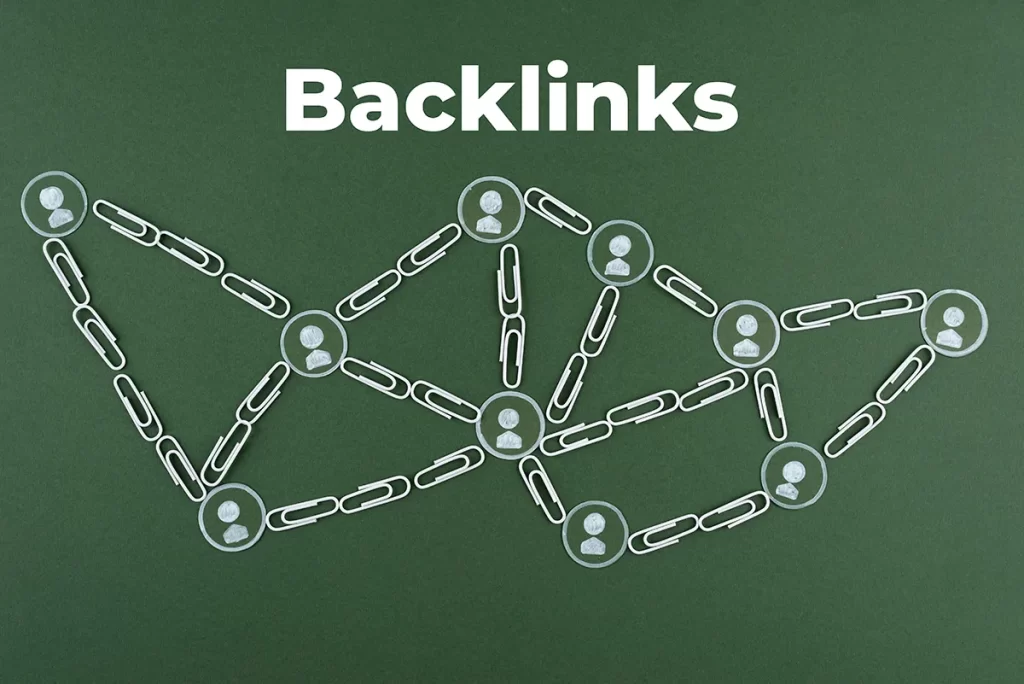Backlinks are one of the most critical elements of Search Engine Optimization (SEO).
They serve as a vote of confidence from one website to another, signalling to search engines that your content is credible and worth ranking higher in search results.
In this post, we’ll explore what SEO backlinks are, why they are essential, and how to build and manage them effectively to improve your website’s visibility and authority.
What Are SEO Backlinks?
Definition of Backlinks
A backlink, also known as an inbound link, is a hyperlink on one website that points to another website.
When a website links to your site, it’s essentially endorsing your content, which can help boost your site’s credibility and search engine rankings.
Think of backlinks as digital referrals—each one suggests that your content is valuable and trustworthy.
Types of Backlinks
- DoFollow Backlinks: These are the most valuable type of backlinks for SEO because they pass on “link juice” (SEO value) from the linking site to your site. DoFollow links signal to search engines that the linked content is worth considering in the ranking process.
- NoFollow Backlinks: These links do not pass on SEO value but can still drive traffic to your site. NoFollow links are often used in situations where the linking site wants to link to a page without endorsing it fully, such as in comments or sponsored content.
How Backlinks Affect SEO
Backlinks play a crucial role in SEO by influencing how search engines, like Google, evaluate your website.
When your site earns backlinks from authoritative and relevant sources, it signals to search engines that your content is valuable and credible, leading to higher rankings in search results.
Conversely, backlinks from low-quality or spammy sites can harm your rankings, making it essential to focus on building high-quality links.
The Importance of High-Quality Backlinks
Not all backlinks are created equal. The quality of your backlinks significantly impacts your site’s SEO performance.
Authority and Trustworthiness
Backlinks from reputable, high-authority websites are the most valuable. These sites are considered trustworthy by search engines, so when they link to your content, it enhances your site’s credibility.
For example, a backlink from a well-known publication like Forbes or a government website (.gov) carries much more weight than a link from an unknown blog.
Relevance
It’s not just about getting links from high-authority sites; relevance also matters. Backlinks from websites related to your industry or niche are more beneficial because they indicate that your content is pertinent to your field.
For instance, if you run a fitness blog, backlinks from health and wellness sites will be more valuable than those from unrelated industries.
Diversity
A diverse backlink profile, which includes links from various sources such as blogs, news sites, directories, and social media, is crucial for healthy SEO.
This diversity indicates that your site is gaining recognition across multiple platforms, which can improve your rankings. However, the focus should always be on quality rather than quantity.
How to Build SEO Backlinks Effectively
Building backlinks is a critical aspect of SEO, but it requires a strategic approach. Here are some effective methods to acquire high-quality backlinks:
Content Creation and Outreach
Creating high-quality, shareable content is the foundation of any successful backlink strategy. When your content is valuable, informative, or entertaining, other websites are more likely to link to it naturally. Once you’ve created great content, reach out to industry influencers, bloggers, and website owners to share your content and request a backlink.
Guest Blogging
Guest blogging involves writing articles for other websites in your industry. In return, you typically get a backlink to your site within the content or author bio. This strategy not only builds backlinks but also increases your exposure to new audiences. To be effective, focus on guest posting for reputable, high-traffic sites that are relevant to your niche.
Directory Submissions
Submitting your website to reputable online directories can help you earn backlinks. These directories categorize businesses and websites, making it easier for users to find relevant content. While directory submissions were more popular in the early days of SEO, they can still provide value if you choose directories that are respected and relevant to your industry.
Social Media and Content Promotion
Promoting your content on social media platforms can indirectly help you earn backlinks. When your content is shared widely, it reaches a broader audience, increasing the chances that someone will link to it. Additionally, active engagement on social media can lead to relationships with influencers who may be willing to link to your content.
Broken Link Building
Broken link building is a tactic where you find broken links on other websites and suggest your content as a replacement. This strategy involves identifying dead links on high-authority sites, reaching out to the webmaster, and offering your content as a relevant alternative. This approach not only helps the website owner fix a problem but also earns you a valuable backlink.
Common Backlink Mistakes to Avoid
While building backlinks is essential, there are some pitfalls to avoid to ensure your efforts don’t backfire.
Buying Links
Purchasing backlinks might seem like a quick way to boost your SEO, but it’s a risky practice. Search engines like Google have strict guidelines against buying links, and doing so can lead to severe penalties, including a drop in rankings or even removal from search results. Focus on earning backlinks organically through high-quality content and ethical practices.
Over-Optimized Anchor Text
Anchor text is the clickable text in a hyperlink. While it’s important to use relevant keywords in your anchor text, over-optimizing by using the same exact-match keywords repeatedly can raise red flags with search engines. This practice can be seen as manipulative, leading to penalties. It’s better to use a natural mix of branded, keyword-rich, and generic anchor texts.
Ignoring NoFollow Links
While NoFollow links don’t pass SEO value, they can still drive valuable traffic to your site and increase brand visibility. Moreover, a natural backlink profile includes a mix of DoFollow and NoFollow links. Ignoring NoFollow links entirely means missing out on potential traffic and engagement opportunities.
Monitoring and Managing Your Backlink Profile
Once you’ve built a solid backlink profile, it’s crucial to monitor and manage it to maintain its health and effectiveness.
Using SEO Tools
Tools like Ahrefs, SEMrush, and Google Search Console allow you to track your backlinks, monitor your backlink profile, and identify any issues. These tools provide insights into the number of backlinks you have, their quality, and how they are affecting your rankings. Regular monitoring helps you stay on top of your SEO efforts and make necessary adjustments.
Regular Backlink Audits
Conducting regular backlink audits is essential to ensure that your link profile remains clean and effective. During an audit, you can identify any spammy or low-quality links that might be harming your SEO. It’s important to regularly review your backlinks and take action on any that could negatively impact your site.
Disavowing Toxic Links
If you find that your website has acquired harmful backlinks, disavowing them is a way to tell search engines to ignore these links. Google’s Disavow Tool allows you to submit a list of links you want to disavow, helping to protect your site from potential penalties caused by bad backlinks. However, this should be done with caution and only when necessary, as disavowing too many links can also impact your rankings.
Conclusion
Backlinks are a cornerstone of effective SEO. High-quality backlinks from authoritative and relevant websites can significantly boost your search engine rankings, drive more traffic to your site, and enhance your online credibility.
By focusing on ethical, white-hat strategies for building and managing backlinks, you can improve your website’s SEO and achieve long-term success in the digital landscape. Start building your backlink strategy today to see the difference it can make in your online visibility.
Frequently Asked Questions (FAQs)
What is the difference between DoFollow and NoFollow backlinks?
DoFollow backlinks pass SEO value from the linking site to your site, helping to improve your search engine rankings. NoFollow backlinks do not pass SEO value but can still drive traffic and visibility.
How many backlinks do I need to rank higher in search engines?
There is no specific number of backlinks required to rank higher, as it depends on factors like the quality of the links, your industry, and your competitors. Focus on acquiring high-quality, relevant backlinks rather than sheer quantity.
Can bad backlinks hurt my website’s SEO?
Yes, backlinks from spammy or low-quality websites can harm your SEO by lowering your site’s credibility. It’s important to regularly monitor your backlink profile and disavow any toxic links.
How can I check my website’s backlinks?
You can use SEO tools like Ahrefs, SEMrush, and Google Search Console to check and monitor your website’s backlinks. These tools provide detailed insights into the quantity, quality, and sources of your backlinks.
Is it better to have many low-quality backlinks or a few high-quality ones?
It’s far better to have a few high-quality backlinks than many low-quality ones. High-quality backlinks from reputable sites have a greater impact on your SEO and can significantly improve your search engine rankings.

















